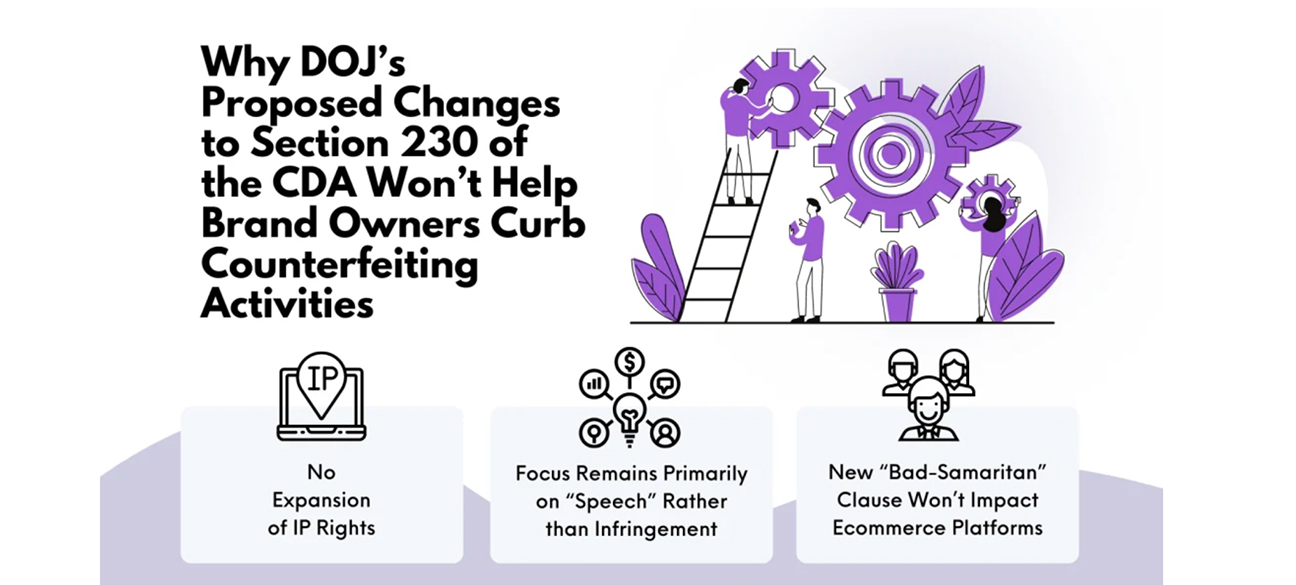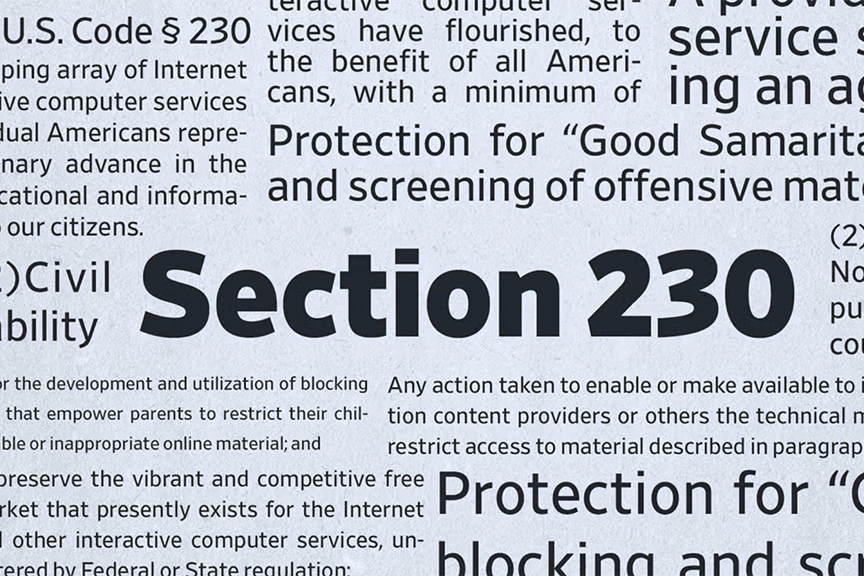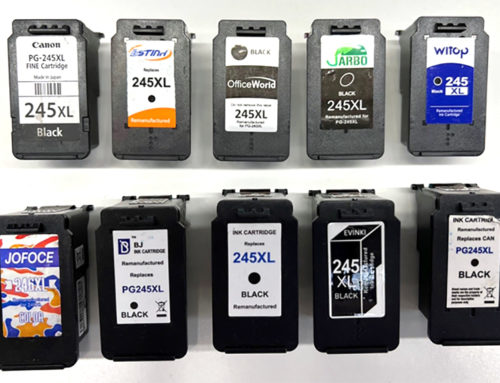Understanding Section 230, imagine the internet as a vast town square where people can gather and have conversations. In this town square, there are two key players: the platform owners (ex.: websites and social media platforms) and the speakers (ex.: users who post content).
Section 230 of the Communications Decency Act is like a law that sets the rules for this town square. It’s similar to the way a shopping mall owner can’t be held responsible for everything people say or do inside the mall. Section 230 says that, generally, internet platforms, just like mall owners, aren’t held legally responsible for the content users post on their websites.
So, if someone in our town square says something harmful, defamatory, or illegal, the person who said it (the speaker) can be held accountable, but the platform owner (the town square manager) isn’t automatically on the hook for what people say. This is because Section 230 provides some legal immunity to these platform owners, allowing them to facilitate open discussions and user-generated content without constantly worrying about being sued for everything posted on their platforms.
However, just like our town square manager has a duty to maintain a safe environment and can’t ignore obvious criminal activity, internet platforms are still responsible for enforcing their own content policies and removing illegal or harmful content. If they fail to do so, they might lose some of the protections provided by Section 230.
In essence, Section 230 is a legal framework that tries to strike a balance between promoting free speech on the internet while also holding individuals accountable for their own actions online.

The Internet has transformed our daily lives, redefining how we live, work, and engage in commerce. E-commerce platforms, like Amazon and eBay, offer an extreme convenience for consumerism. However, in Understanding Section 230, it’s the law responsible for the seemingly unregulated expansion of these platforms is facing scrutiny due to repercussions.
In 1996, during the early era of the Internet, Section 230 of the Communications Decency Act was enacted. The fundamental goal was to foster a free exchange of ideas while safeguarding online platforms and service providers from liability of user-generated content; notably speech and text writing users placed on websites.
Today, e-commerce has developed into an expansive online marketplace, where third-party vendors can list and sell their products with little or no oversight. These platforms have deftly wielded Section 230 as a protective shield, asserting immunity from legal repercussions associated with misleading content and product descriptions posted by third-party sellers. This has driven concern about the original intent of Section 230 and its implications in the modern Internet.
Section 230 and its application in the e-commerce space has raised several concerns about accountability, particularly regarding consumer protection. Examples include:
- False Advertising and Misleading Claims: E-commerce platforms, under the protection of Section 230, have allowed sellers to make false and misleading claims about products they sell. Consumers often rely on product descriptions, reviews, and ratings when making purchasing decisions, but the proliferation of inaccurate information deceives consumers daily; especially when consumers are led to trust the platform the products are sold through.
- Counterfeit and Unsafe Products: The rise of third-party sellers has also brought an influx of counterfeit and unsafe products. These products often expose consumers to health hazards to financial loss.
- Limited Accountability: Section 230 removed accountability of the e-commerce platforms in regards to the quality and safety of the products purchased through them. This lack of accountability leaves consumers with little recourse when they encounter problems, especially if the product is from an overseas third-party seller or manufacturer.
- Consumer Confusion: Knock-off products are flooding the market, often indistinguishable from genuine items. Consumers unknowingly purchase inferior products, believing they are getting a reputable brand as Amazon features these items in product listings when consumers search their platform.
- Legal Challenges: When consumers seek legal remedies over products purchased on e-commerce platforms, they repeatedly face hurdles due to Section 230 protections. The burden of responsibility is shifted away from the platform where it was purchased and onto the individual seller that posted the item for sale; a seller who may be located overseas and who doesn’t respond to U.S. legal requests.
Overseas manufacturers typically do not adhere, or even respond to U.S. law, and so consumers not only fall victim to fraudulent and misleading claims but can also be harmed by defective products with no recourse. Additionally, businesses that have developed innovative products and built goodwill in the market see their customer base and sales rapidly decline due to the proliferation of “knock-off” products. Understanding Section 230 for E-commerce platforms, including Amazon, has more incentive to accommodate a higher number of sellers whom they reap profit from rather than taking effective action to prevent consumer and business harm.
It is crucial to recognize that Amazon profits from the advertising, sale, and fulfillment of products on its platform, irrespective of whether these products defraud or pose harm to consumers. When Amazon is requested to intervene and halt these unlawful practices, requests are often met with insufficient responses. When legal action occurs, Amazon frequently seeks immunity under Section 230, which was never intended for such purposes.
There is a growing consensus that Section 230 was not designed to provide blanket immunity to ecommerce platforms from unlawful third-party sellers. Consumer protections need to guard against all unfair trade practices that harm buyers and thwart competition in the ecommerce marketplace as well. Without reform, e-commerce platforms have no incentive to truly police its websites and can profit from bad actor selling on its platform.
Reforming Section 230 in the context of e-commerce has the potential to hold platforms accountable for the accuracy of product listings, ensuring they implement strict measures to prevent the sale of counterfeit or unsafe products, and reform would establish clear guidelines for addressing consumer complaints and disputes with accountability.
In the next article of this series, we will delve into Section 230 and e-commerce, and how it hurts consumers in the online marketplace.






